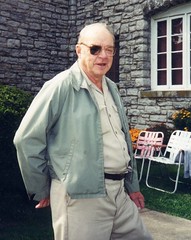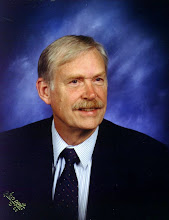Many of us have recognized for some time that when members of Congress talk about taxing the income of the rich, they really are working from the view that all income is theirs (the government’s) and they will let the rich keep some of it. It would perhaps better if the government taxed wealth, instead of income. But that would affect the Teddy Kennedys of the country and they would never allow that.
Two days ago in my local paper there was a story that said the Supreme Court of California will decide whether a law that was passed overwhelmingly by the people of that State, is constitutional. The Supremes start out with the notion that all laws are unconstitutional and THEY will decide what we will and will not have on our law books. Since what they decide is often formed from their whims about what life should be like, and not from existing laws, this is a kind of double slap in the face of citizens. I suspect that nine cheap lawyers in black robes are no better qualified to make these decisions than are the people of California.
Our Constitution was written to protect us from government. It puts limits on ALL three branches. But the imperious ruling class tends to forget that.
Supreme+Court California+Supreme+Court Politics Taxes Congress Constitution
Saturday, December 23, 2006
Thursday, December 14, 2006
Judge Sides with Bush on Terrorism Law
In an AP story this morning (where it was hard to find) Judge James Robertson of the Federal District Court said “detainees (at Guantanamo Bay) can’t challenge their imprisonment in federal courts.” Originally, the judge said the prisoners could challenge their imprisonment in federal courts. Then Congress passed a law that said otherwise and for some reason, the judge must have actually read what Congress had passed.
How long the judge’s ruling will last is open to question. He is the same Clinton-appointed judge who ordered the government to change the style of U.S. currency. The Constitution is clear about the responsibility for designing money and it explicitly appointed another branch of the government to handle that duty. It goes to show that the Constitution is not an impediment to much judicial thinking, these days.
Coddling criminals and extending to aliens the same rights as citizens is a fairly recent battle that belongs in the land of the Liberal, not the land of the Constitution. But the handling of enemy combatants is not new.
When President Lincoln enacted his tough laws against northern citizens (most of whom happened to be in the opposite political party), he usurped the powers of Congress. Only Congress can suspend the right of Habeas Corpus, for instance—not a president. But Lincoln did it anyway. The question during the Civil War was not “Shall a President act in a tyrannical way towards citizens of another country (CSA)?” Rather, it was “Shall a president act in a tyrannical way toward the citizens of his own country?” Where was the Supreme Court during this period? Shamefully hiding under its collective desk. Meanwhile Lincoln had some 13,000 American civilians in the north tried by military tribunals and tossed into prison (Doubt what I say? Read your history books for this period.)
During the Civil War, most of Congress and the President were on the same side of the issues, so the President’s actions suited Congress. Jointly they raped the public and took away their rights as though American citizens were aliens. Now, during the Iraq war, many who are in Congress and on the federal bench are not on the same side as the President and therefore feel obliged to make sure enemy combatants are given the full rights of American citizens.
Why should enemy combatants have the same rights that American citizens have? Beats me. Not even the weird Supreme Court of the 1860’s could come up with that.
Supreme Court
Habeas Corpus Abraham Lincoln Civil War Guanamo Bay
Conservatives
How long the judge’s ruling will last is open to question. He is the same Clinton-appointed judge who ordered the government to change the style of U.S. currency. The Constitution is clear about the responsibility for designing money and it explicitly appointed another branch of the government to handle that duty. It goes to show that the Constitution is not an impediment to much judicial thinking, these days.
Coddling criminals and extending to aliens the same rights as citizens is a fairly recent battle that belongs in the land of the Liberal, not the land of the Constitution. But the handling of enemy combatants is not new.
When President Lincoln enacted his tough laws against northern citizens (most of whom happened to be in the opposite political party), he usurped the powers of Congress. Only Congress can suspend the right of Habeas Corpus, for instance—not a president. But Lincoln did it anyway. The question during the Civil War was not “Shall a President act in a tyrannical way towards citizens of another country (CSA)?” Rather, it was “Shall a president act in a tyrannical way toward the citizens of his own country?” Where was the Supreme Court during this period? Shamefully hiding under its collective desk. Meanwhile Lincoln had some 13,000 American civilians in the north tried by military tribunals and tossed into prison (Doubt what I say? Read your history books for this period.)
During the Civil War, most of Congress and the President were on the same side of the issues, so the President’s actions suited Congress. Jointly they raped the public and took away their rights as though American citizens were aliens. Now, during the Iraq war, many who are in Congress and on the federal bench are not on the same side as the President and therefore feel obliged to make sure enemy combatants are given the full rights of American citizens.
Why should enemy combatants have the same rights that American citizens have? Beats me. Not even the weird Supreme Court of the 1860’s could come up with that.
Supreme Court
Habeas Corpus Abraham Lincoln Civil War Guanamo Bay
Conservatives
Saturday, December 02, 2006
Cousin Horace


Finding a long lost cousin is usually a pleasure. Ten years ago I went to central Kentucky near Lexington, from the Los Angeles area to conduct research on my family. I had a question to ask of the man who was in charge of the Georgetown City cemetery. It is a beautiful place. He did not have the answer, but offered me a list of people who might know the answer. One on the list was a cousin I had not seen or heard of in forty-five years.
I called Horace Grover Gaines, my cousin. It took some convincing, but soon he showed up at the cemetery office to answer my questions directly. He was a big, nice looking man with an eye patch. He was definitely pirate material. Older than I by about nine years, He had been undergoing surgery on the cornea of one eye. It was clearly uncomfortable for him, but genealogy was important and I was going back to California soon. So he stayed with me and took me around town and his farm which had historical significance for several reasons.
The caretaker of the cemetery was very deferential to Horace, so I figured Horace was an important man in the community. Among other things Horace was the director of the cemetery. He was also the director of the biggest bank in town and served on the board of education, the draft board (in times past), and all sorts of community endeavors.
Horace was immensely likeable. And knowledgeable about our family in common. He had paintings of our ancestors in his home. He had records I had never imagined. But I had something for him as well: I convinced Horace that the farm he owned had been carved from the Kentucky wilderness by our common ancestors in 1783.
I felt bad because I had not known Horace longer. He was a good, intelligent man and a funny one besides. Over the next few years we corresponded often and swapped information. I wrote magazine articles based on his data and almost got the Louisville PBS station to conduct a search on his farm for signs of our Revolutionary War ancestors. But they backed out at the last minute.
I did not know Horace was a war hero, a wounded veteran of Pacific battles in WWII. I also did not know that Horace’s mind was slipping into Alzheimer’s disease. I should have suspected something because he did not remember my mother, a pretty woman whom most men did not forget.
I did get back to Georgetown a few years later with my wife. I was pleased that she got to know Horace and that we met Horace’s daughter and her children before Horace was carried away by his disease. His wife had died. He had a wonderful woman friend who helped take care of Horace until the end, which came on October 14, 2006.
I read that this nation is losing around one thousand of its WWII veterans every day. Horace was just one of those statistics. Until, that is, I set up a web page for him. It will stay on the Internet until I am another statistic.
Kentucky
Subscribe to:
Comments (Atom)

